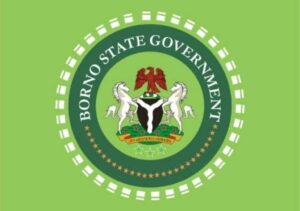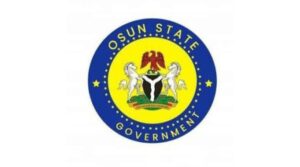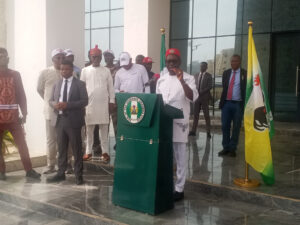The Revenue Mobilisation Allocation and Fiscal Commission (RMAFC) says it is reviewing the salaries of political office holders in Nigeria.
During a press briefing in Abuja on Monday, August 18, the Chairman of RMAFC, Mohammed Shehu, explained that President Bola Tinubu earns N1.5 million monthly, while ministers earn less than N1 million. These salaries have not been adjusted since 2008.
Shehu noted that paying the President just N1.5 million monthly in a country of over 200 million people is laughable. He argued that ministers earning less than N1 million since 2008 cannot be expected to give their best without seeking other income sources.
He pointed out that some agency heads, such as the CBN governor and directors-general, earn ten to twenty times more than ministers and even the Attorney-General of the Federation, which he described as unfair.
The Nigeria Labour Congress (NLC), however, rejected the proposal, stressing that it ignores Nigeria’s growing inequality. The NLC argued that politicians already enjoy hidden benefits and allowances that make their real earnings much higher.
Shehu clarified that the Commission does not set the minimum wage for civil servants. Instead, it is only responsible for fixing salaries of political, judicial, and legislative office holders, including governors, senators, ministers, and DGs.
The RMAFC boss appealed to Nigerians to support fair pay for top officials, insisting that realistic salaries are necessary to reflect their responsibilities.
Shehu also announced that the Commission has started reviewing Nigeria’s revenue-sharing formula. This formula determines how money collected by the Federal Government is distributed among federal, state, and local governments.
The current formula, in use since 1992, gives 52.68% to the Federal Government, 26.72% to states, and 20.60% to local governments.
Additionally, 4.18% is reserved for special funds: 1% each goes to the Federal Capital Territory and ecological fund, 1.68% to the natural resources development fund, and 0.5% to the stabilisation fund.
Shehu explained that changes in the constitution have increased the financial responsibilities of state governments, making a review of the formula necessary to promote fairness and sustainability.
He recalled that in 2022, the Commission under former chairman Elias Mbam proposed a new formula: 45.17% for the Federal Government, 29.79% for states, and 21.04% for local governments. However, the Buhari administration did not implement it.
Revenue sharing has been a heated issue in Nigeria since before independence. It involves deciding how national income is shared between regions and government agencies that collect revenue.
The current revenue formula was created during former President Olusegun Obasanjo’s time. Since then, there have been repeated calls for change to ensure fairer distribution of national resources.
In 2013, RMAFC began a nationwide consultation with the 36 states and key stakeholders in a bid to review the formula.
Findings revealed that political interests and the Federal Government’s reluctance to lose its large share of national revenue have stalled the adoption of a new formula.







